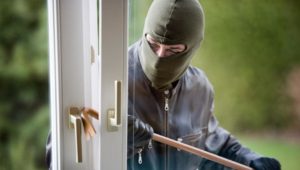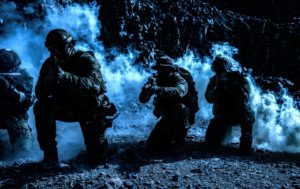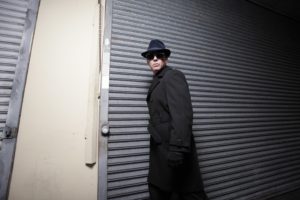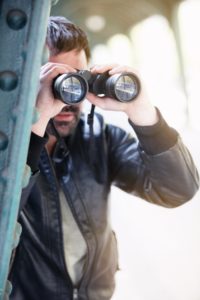Situational Awareness 101 is all about the Basics of SA (Situational Awareness). It is about the most fundamental of concepts. These concepts can serve to enable you to see better, hear better, and consider wise choices in life. You can protect yourself and make you less of a viable target to those that might mean harm. In this post, I will focus on a few of the simplest things you should be doing daily. We live in a world where threats and danger can come at you from any direction and in the most unlikely ways. You should ALWAYS be mindful of your Situational Awareness.
It does not matter where you live. It could be in a diverse community, or in one that is culturally specific. You could live in a wealthy community with an ever-present and attentive police department or one that needs economic help. Small towns and big cities, each face a similar challenge. Criminal and terrorists have cars and are mobile in much the same way you are. They search for opportunities. They watch. They probe. They test. And they have all the time in the world.
https://www.ktvb.com/article/news/crime/we-asked-86-burglars-how-they-broke-into-homes/277-344333

Masked Burglar Prying a Door
https://www.fashionbeans.com/content/burglars-reveal-what-makes-certain-people-easy-targets/
The best and most resourceful police agencies in the country have natural limits. There are only so many officers, so many cameras, and there is often a lot of territories to cover. Police cannot sit in front of your home, your office, your school or the park your children play in and wait for the criminals to come to them. Criminal have the luxury of being able to sit and watch. The police car passes and continues away, they are relatively free to do mischief. No police come by, because they are engaged somewhere else, or there simply are not enough to be everywhere, the criminal is there ready to strike.
So, what are your solutions, what can you do?
Well it is not absolute, not certain or guaranteed, but you can cover the bases, so to speak. People trained in Awareness, like Military Special Operations personnel, or Spies, learn how to operate in dangerous areas, do dangerous things, and succeed in not being discovered and captured…most often. These people plan, strategize and make reasoned modifications to things that most take for granted.

Team squad of special forces in action in the desert among the rocks covered by smoke screen under cover of darkness

Hanging in the Shadows
Those things are habits, patterns and fixed rules like their schedules. Special Operators and Spies look and listen. They see what is in place and out of place. They presume that there is something there, and look for it. They can then mitigate it with “countermeasures” or in other words, by their actions. Examples are people sitting in cars, seemingly with no purpose, persons following them when they are moving, and vehicle(s) that seem to match their path as they drive.
These things I describe here are “Stalking, Stake-out, Surveillance, and Counter Surveillance” issues.

man in leather jacket looking through binoculars
There is a recent video on the local news showing a white pick up truck, driving down a nice residential street. It shows that same moment a resident pulls their car out of a driveway. Moments later the same truck slowly returns, passing by the same location again. After a short time, the truck parks down the block, out of sight. The driver gets out of the truck and goes to the residence where the call had departed. The guy knocks on the door. When no one answers, he then commences to go around the house and breaks in from the rear.
This is not a unique example of a burglary, this is the way it happens.
Another way it happens, speaking about burglaries again, is when you give out information that tells the world you are leaving your front door open…in a sense. Social Media is the way. When you leave a vacation or event post, believing it is getting only to your friends, you open the front door to those that can get that information and leverage your absence to break into your home. My recent post on Celebrity Burglaries talks specifically about some examples of this happening. When you open the door in this way you make it easy for the criminals. It is also true that many of these happen due to “inside” information. By that, I refer to employees, neighbors, associates that choose to victimize you because you gave them the information and they are the types to do such crimes.
This is the link to my own earlier blog post on the subject of recent celebrity burglaries that likely involved social media.
https://yoursituationalawareness101.com/burglary-hate-say-told-actually-dont-social-media-related/
For most of the world that works a fixed work schedule, let’s call it the “9 to 5” workday. Well, perhaps you cannot adjust your work schedule so that you can come in at different times of the day, to disguise or hide a pattern. When I was working overseas for the government, I would tell the local Embassy office that my arrival each day would be at a different time, each day. I had that flexibility. It was also what we taught Spies and other to do when it was possible for them. Those that might watch them would have a harder time planning an attack or other act when they could not predict when the person was most vulnerable. You may not have that kind of flexibility, but, if you do have to be at work at 9 a.m. you could leave at a different time from day to day, not necessarily at 8:30 because it is a 20-minute drive. Yes, your home will still be vulnerable the remainder of the day, as is normal, but at least you are less of that threat for an attack on your person. The protection of your home will obviously have to come from other measures that you employ. Measures like good locks, good lighting, clear lines of sight eliminating hiding places for criminals, an alarm system with a good company, internal and ideally external cameras (the new phone app systems are outstanding options) and a good neighborhood watch plan. That busybody old man or lady across the street, the one that is so annoying…might be the one that sees the bad guy and calls the police for you. And hopefully at the right time and for the right reason!
Has to the issue of surveillance, my experience with it is that I am ever amazed at how little attention people pay to what is going on around them. It is unbelievably easy to follow people without them noticing it. I have done it with countless criminals and terrorists in America and around the world. Only those trained in, or who practice the concepts and recommendations I am offering here, are likely to notice surveillance. And you should, particularly the women in this world of Rape and Kidnapping. Wouldn’t you appreciate it if your child were so aware that they were always mindful of their surroundings? What if they noticed the man in the mall or the park watching or following them, or the location of the exits to the theater when the lights go out and before an emergency. And what about you when they are normally hypnotized by their cell phone, wouldn’t it be nice if they were instead, aware of the person hiding in the shadows! All these apply to you as well.
Here are the summarized Basic Situational Awareness Points of Focus: (not all, but a start):
- Patterns and Habit are bad. Become aware of those things you always do and find ways of making subtle or if necessary extreme modifications or changes. If you can change the time that you leave home each day…it might help. You certainly could change the time you leave work, considering how easy it would be for someone to follow you from your workplace. Someone following you from work can easily learn where you live…leading to more opportunities to victimize you.
- Your homes vulnerabilities. If your home is vulnerable, YOU are vulnerable. How effective are your door and window locks? You can get expert advice on this if you contact your local police. Good deadbolts with deep penetration into a reinforced door frame. Effective window locks, and windows that are always locked. Landscaping that does not give good hiding places for bad guys to hide from police or neighbors. Good outdoor lighting at night. Cameras inside and outside focused on points of entry and capable of capturing quality images (this may not prevent a crime, but will contribute to a worthwhile investigation after). An alarm and alert system of the type being offered with phone app access to live activities around your home remotely.
- Surveillance/Counter Surveillance. Be aware of your surroundings always and in all places. I am always on the watch from inside my home, before walking out the door, and until arriving in my next perceived safe location (which might mean once inside my safe and locked vehicle). And then, once commencing movement, I am always aware of any changes to my surroundings as I begin to move, either on foot or in a vehicle. Did someone else move, did something unusual happen. When leaving the home, did I see that white truck, which is not familiar to my neighborhood, driving slowly near me? I am leaving home/work/friends place/theater, etc., am I being watched/followed? A reasonable question for many out there…certainly, I want my daughter considering this, and she does!
- Movie Theater/Mall/Concert. I never walk into a place that I don’t immediately determine how I will get out if I need to. Where are the exits, where do those exits lead, what is the crowd dynamics, where would I go if….? Emergencies can and will happen, how will you be prepared? By planning and analyzing…this does not take special training, just basic observation and thought.
- Travel. Just as you would, or I should say, you SHOULD, always check that you have enough gas in your car…well you should always check all the basics of your car’s status. Not just gas, but tire status, oil, and water, lights and electricals each. Navigation is a convenient and ever available tool for use in getting around. It doesn’t hurt to know how to read a map, but, given the alternative, plot out your trip and know your options for alternative routes. Major travel requires more extensive preparations that to some degree most do so. But do you prepare for protecting your personal and sensitive property? Is your luggage locked? Where will you put your cell phone, your laptop, and your business documents? Do you have all the necessary medication and or prescriptions on hand? Do you have emergency contact information available for yourself or others if it becomes necessary? Have you given good preparation for your arrival with ongoing transportation considered? Rental car, hired car or uber/Lyft services? Where will you be staying…safe location/area? Convenient to where you may need to go? Services available where you are staying? Is the location walkable? What are the crime rates and threats? Each item covered here seem to be obvious. But the reality is that many do not give adequate thought to many of these points. During my years of extensive travels, I considered all of this and much, much more.
This does not represent an eye-opening outline of good and safe Situational Awareness, it all is rather standard practice for me and perhaps for many of you. You can add your own best practices to enhance this listing for yourself.
